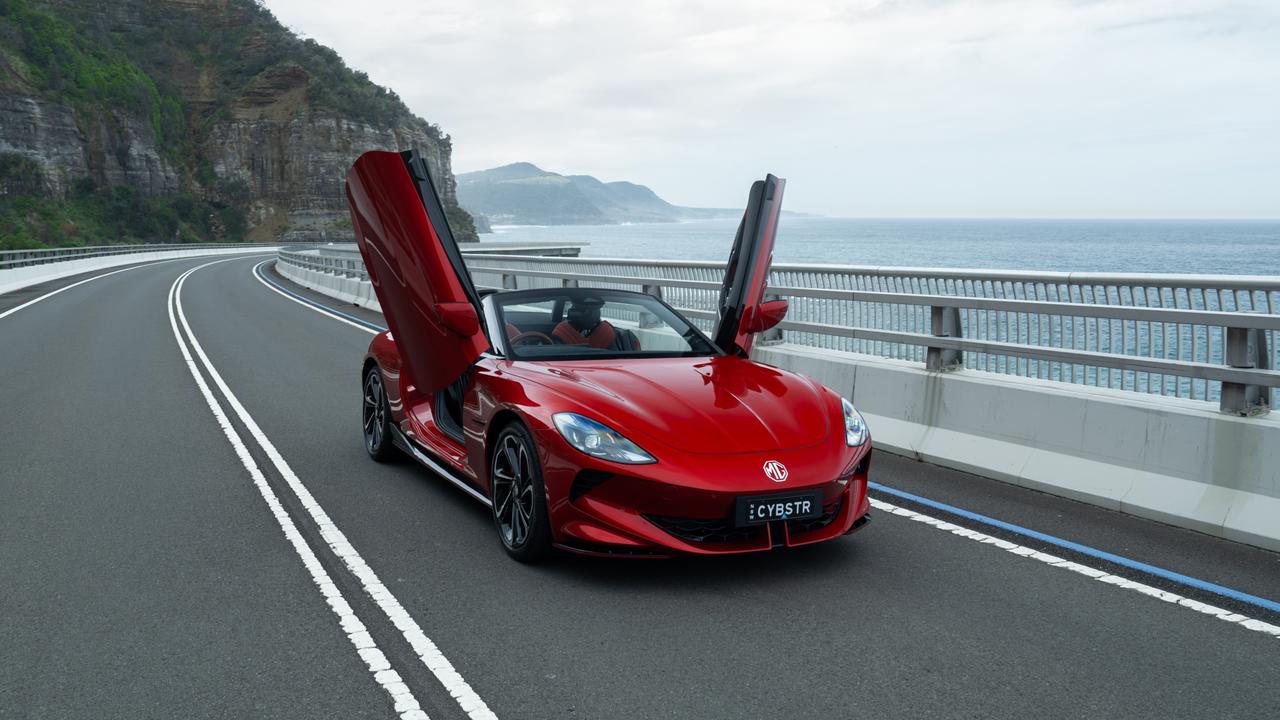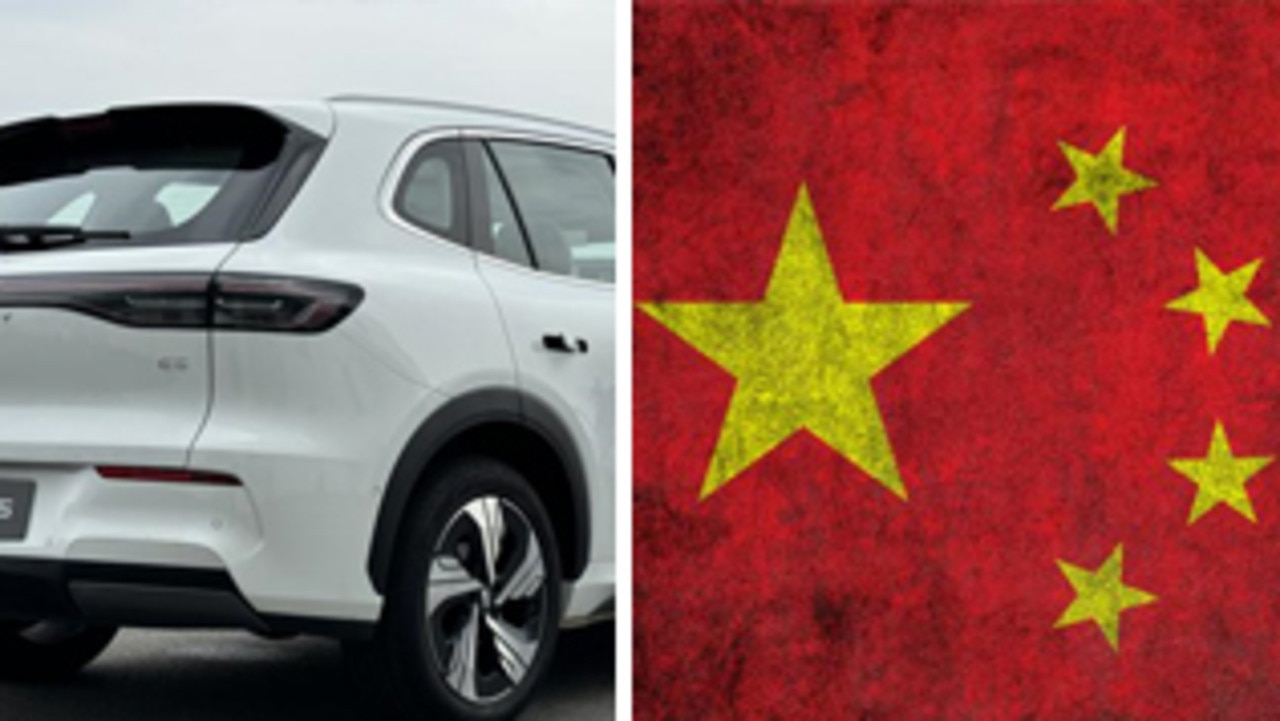Is the Nissan Ariya the car to beat Tesla?
A global giant with plenty of electric car experience is going all-in on a car that could change the way people approach it.
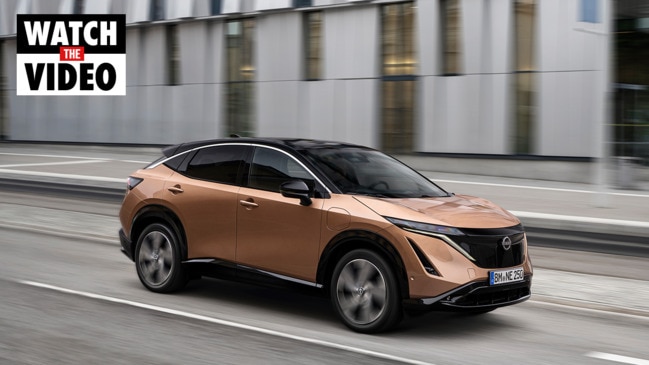
New Cars
Don't miss out on the headlines from New Cars. Followed categories will be added to My News.
For a brand that was an electric vehicle leader with the Leaf, Nissan has taken an achingly long time to develop its next EV. The Ariya, which broke cover in 2020 and is already on sale in other parts of the world, will finally fill that void locally next year.
Unlike the Leaf, the Ariya was designed from the outset as an EV, allowing key components to be optimally positioned.

The mid-sized five-seater is Nissan’s answer to the Kia EV6, Hyundai Ioniq 5 and upcoming Subaru Solterra and Toyota bZ4X. It’ll also go head-to-head with the market leading Tesla Model Y.
There’s no word on pricing, although Nissan admits it must be competitive with the likes of Tesla, now the top-selling SUV in the country. That would suggest a starting price of about $70,000, although the dual-motor e-4orce model would clearly be more than that.

As with key rivals, the Ariya is expected to come loaded with equipment, as our early test cars were. Nissan hasn’t finalised Australian details yet.
Futuristic design and technology are the highlights for the Ariya. The cabin is as bold as its exterior. The grille pattern is inspired by a Japanese kumiko pattern and is carried through to the cabin on the doors and floor panel at the base of the centre console. The SUV is designed to allow over-the-air software updates to tweak certain functions throughout its life.
Two 12.3-inch screens dominate the stark dash and allow you to swipe displays from one to the other. There’s also a head-up display.

A sizeable dial in the centre of the dash takes care of volume controls but traditional buttons have been replaced with touchpads. Press the pads and there’s a mild kickback to reinforce you’ve had the desired result. It’s indicative of the thought put into the Ariya. Faux-wood finishes are convincing and suede-like panels on the dash and doors are a classy touch.

A subtle gold strip and silver highlights add top the up-market design. There’s an airy feel, too, and those upfront will have little to complain about.
Rear seat sprawling room is helped by the flat floor, although the high-ish seat base eats into head room. Generous knee-space amplifies the overall sense of spaciousness.
While there’s no storage under the bonnet, there are clever pockets elsewhere. Push a button and a drawer in the centre of the dash slides open.

The bulky centre console can also electronically slide forward and back to reposition cupholders and the small cubby hole closer to ground level. The cars we drove featured the larger 87kWh battery pack with a claimed 536km of range. There’s also a 63kWh pack that is likely to make its way Down Under, lowering that range claim to 404km.
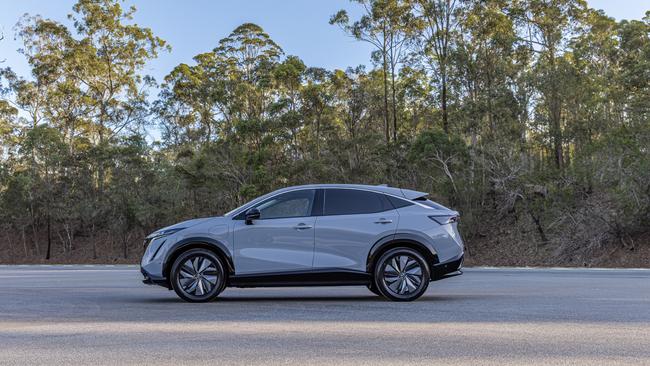
Outputs peak at 178kW and 300Nm for the single motor, front-drive model, with claimed 0-100km/h acceleration of 7.6 seconds. That’s decent, but far from great in the EV sphere.
The Ariya works nicely once moving, with near-instant responses typical of an EV. Darting from 60km/h to 80km/h requires little more than a roll of the ankle. But there’s laziness off the line, which is unusual for an electric car. Plant the throttle and it eases away in a leisurely fashion. It’ll suffice for the peak-hour grind but won’t shine in the traffic light Grand Prix.
The dual motor e-4orce model that will top the Ariya line-up will no doubt answer that, with up to 290kW/600Nm and the ability to top triple figures in as little as 5.1 seconds.
Elsewhere, the Ariya feels competent but doesn’t exactly tingle the senses. To be fair, our taste test was brief and confined to a loop devoid of the lumps and bumps that can litter Aussie roads.

The Ariya was predictably smooth and the cabin was hushed, helped by double-glazed windows.
Suspension is cushy and the car nicely planted, although it leans on its nose when you dial up the pace, the two-tonne-plus body challenging the talents of the tyres.
Steering gets the job done but in a dull way. It takes on a heavier, dead demeanour in Sport mode.

First impressions suggest the Ariya seems happier in Normal mode, even if it is anything but normal for Nissan.
The challenge for the Ariya will be finding clear air in a market segment that’s threatening to get crowded.
No doubt its distinctive design will help turn heads while the modern tech-focused cabin pampers. Just don’t expect a rush from behind the wheel.
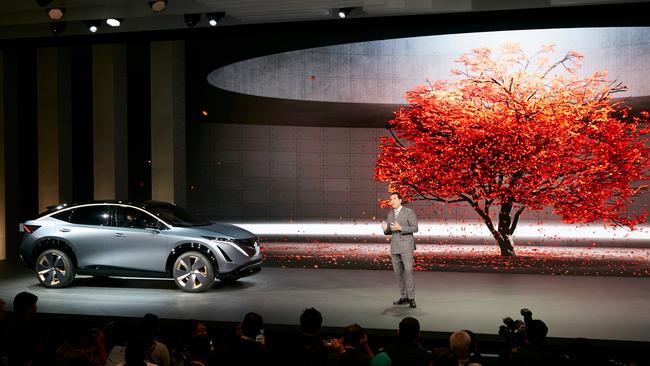
NISSAN ARIYA
PRICE: About $70,000 (est)
POWER: Single electric motor, 178kW/300Nm
WARRANTY/SERVICING: 5 yrs/unlimited km, TBA
SAFETY: 10 airbags, auto emergency braking, lane-keep assist, driver monitor, blind-spot monitoring
RANGE: 536km
SPARE: Repair kit
BOOT: 466 litres
Originally published as Is the Nissan Ariya the car to beat Tesla?

